The Revolution Will Be Hashtagged: Culture-Jamming and Rewriting Popular Culture
The culture-jamming outlet, Adbusters is said to be a key force behind OWS with its distribution of this hashtag and message in its magazine and website in July 2011
Adbusters’ guerilla style campaign specifically targets social media through the use of the hashtag (#occupywallstreet) and explicit references to the grassroots tide of the so-called “Arab Spring.”
Historically, Adbusters and other “culture-jamming” groups were seen in some ways as oppositional to “commercial culture.” Their Situationist-inspired strategies parallel other appropriative tactics that more playfully draw from a common well of popular culture to generate alternative meanings as seen below. (Photo: Ron C)
This sign from OccupyLA taunts Gordon Gecko from the film Wall Street, using the character as a metonym of “Greed is Good” corporate culture. (Photo: Kevin Driscoll)
The (presumably Wall Street) Monopoly Banker gets dragged off to “hell” by one of the 99% (Photo: Kevin Driscoll).

Street artist Banksy gets in on the Occupy game with his “installation” at Occupy London. A forlorn Monopoly banker panhandles, perhaps for his bail-out.
Zombies and other tropes of horror movies evoke finance in an era of “toxic assets” at Occupy Wall Street (NewYork). (Photo: David Shankbone)
A stenciled Louis Vuitton logo suggests class divide on the sidewalks of Occupy LA. (Photo: Kevin Driscoll)
The well-recognized image of the raised fist is regularly appropriated as a symbol of the underdog or oppressed group fighting against the Goliath of the day.
Like the Harry Potter Alliance’s “What Would Dumbledore Do” campaign, these signs at OccupyLA playfully draw from moral exemplars in popular culture. (Photo: Kevin Driscoll)
Next: Targets

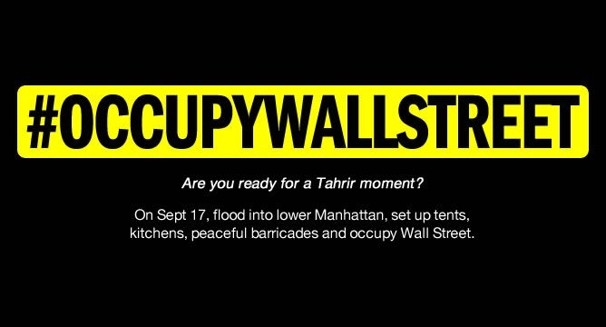

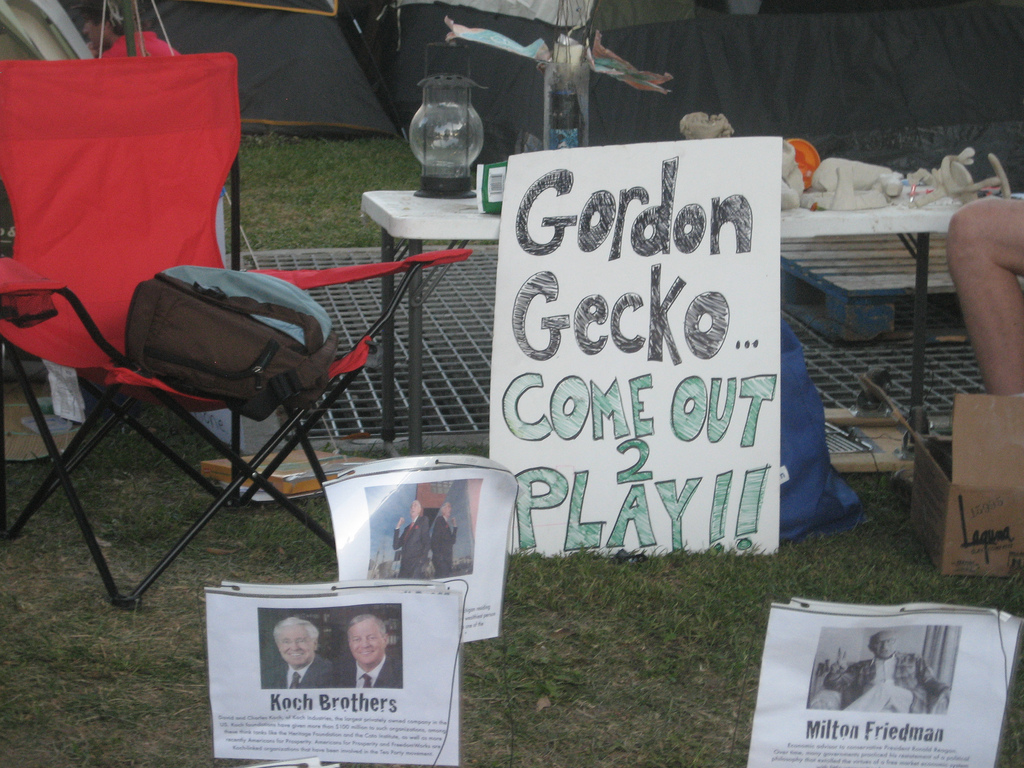
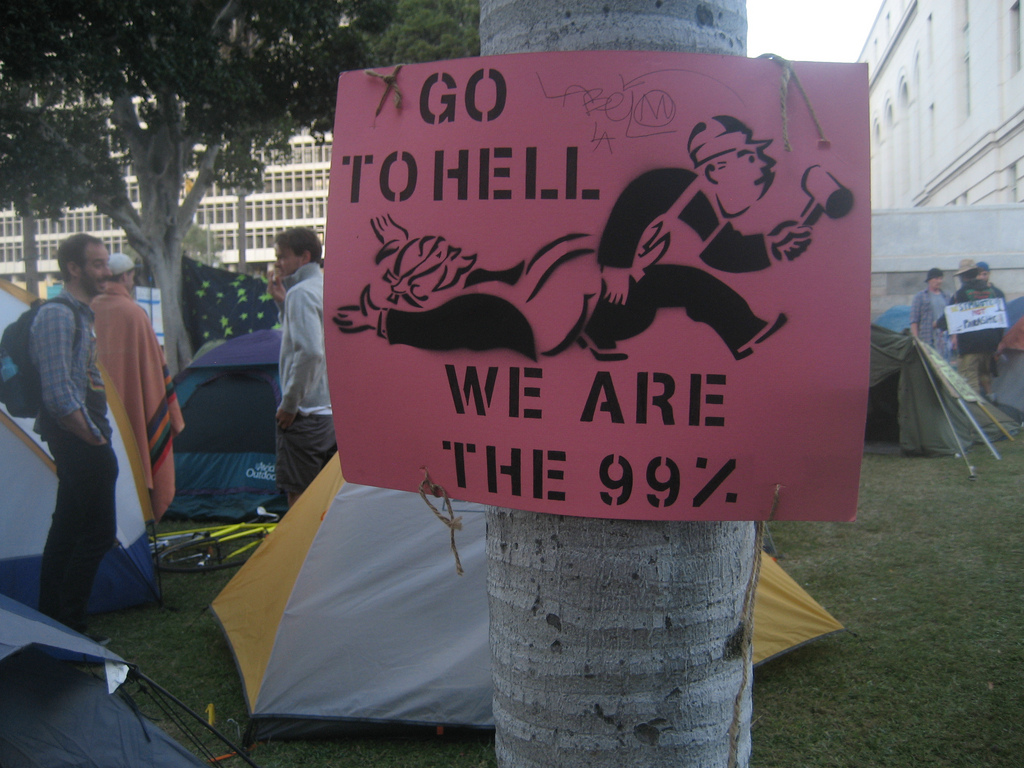

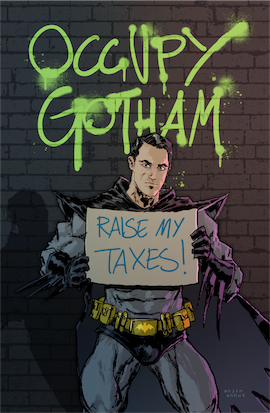

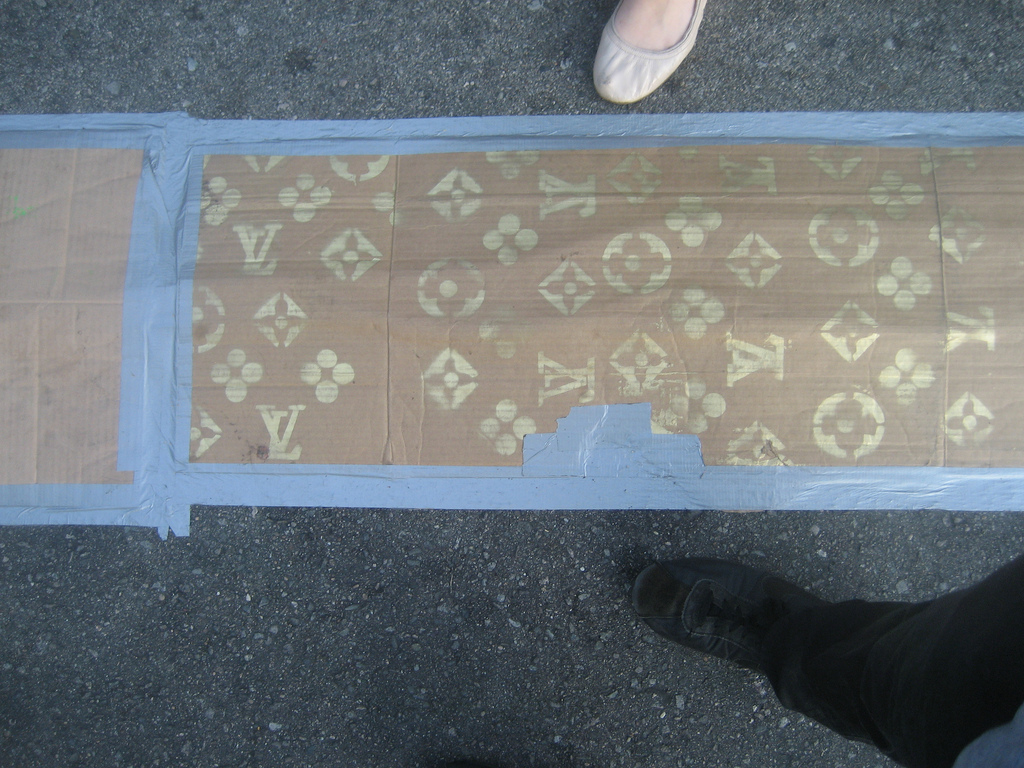

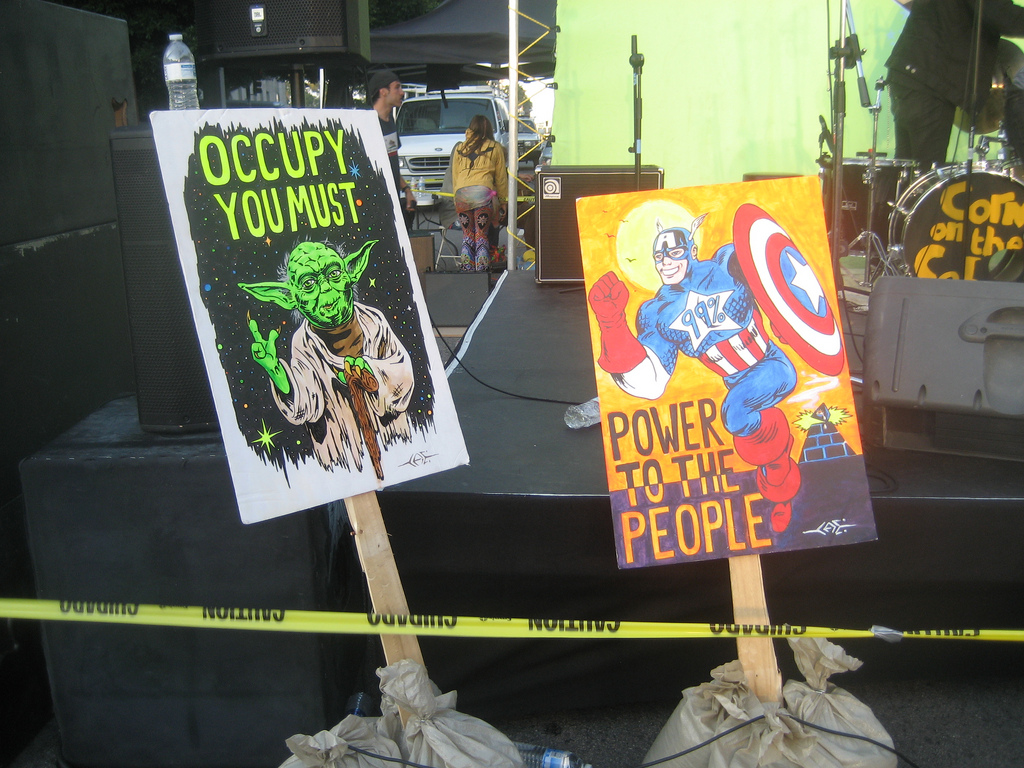

[…] Visual Culture of the Occupation. […]